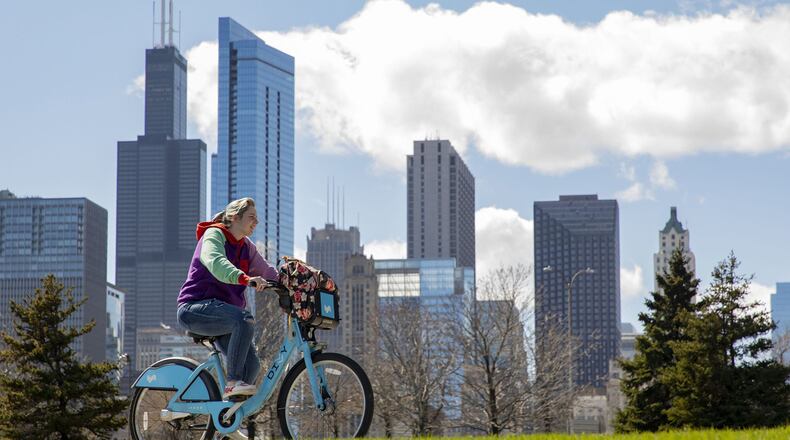In a blow to Democrats in Georgia and across the South, the Democratic National Committee selected Chicago as the site of its 2024 convention despite a strong push for Atlanta to host the political spectacle.
Party officials announced that Chicago would host the convention, dashing hopes of top state Democrats who had lobbied President Joe Biden and his allies relentlessly for the quadrennial event.
They hoped it would showcase Georgia’s growing political importance as one of the nation’s premier battleground states. But instead the convention went to Chicago, the biggest city in one of the nation’s most solidly Democratic states.
“Chicago is a great choice,” Biden said in a statement on his way to Northern Ireland. “Democrats will gather to showcase our historic progress, including building an economy from the middle out and bottom up, not from the top down.”
Chicago Democrats touted the state’s pro-union stance and its deep base of political donors. Illinois Gov. J.B. Pritzker, a billionaire with likely presidential aspirations, also assured party leaders that he would help bankroll an event that could cost more than $80 million — a promise that Georgia Democrats said proved to be decisive.
It was a devastating development for Atlanta boosters, who were confident over the weekend that Biden would pick Georgia for the event. It would have amounted to a short-term economic boon for Atlanta, drawing 5,000 delegates and 45,000 other visitors. New York City was the other finalist.
“Atlanta fought hard and left everything out on the field,” Atlanta Mayor Andre Dickens said.
Atlanta last hosted the Democratic convention in 1988, when Michael Dukakis was officially minted as the presidential nominee and the state was a solid blue bastion. Now Georgia is one of only a few competitive states on the 2024 road to the White House.
Intense behind-the-scenes maneuvering and public jockeying for the event, which will take place Aug. 19-22 next year, didn’t pan out for Atlanta.
Credit: Ben Gray for the AJC
Credit: Ben Gray for the AJC
The city’s bid centered on Georgia’s swing-state politics, replete with callbacks to Biden’s 2020 flip of the state in the presidential election and the victories by Jon Ossoff and Raphael Warnock in the 2021 U.S. Senate runoffs that swung control of the chamber to Democrats.
Also sharing the spotlight was the city’s civil rights history, something that the Choose Atlanta 2024 committee evoked with a slogan that puts a twist on the late U.S. Rep. John Lewis’ iconic mantra: “Make Good Trouble With Us.”
As they mounted their campaign for the event, Atlanta boosters lined up commitments from the state’s largest corporations and key donors exceeding $20 million, about a quarter of the estimated cost. Ticket sales, sponsorships and suite packages would help cover the rest.
Promoters of the event took the opportunity to press Biden every chance they could. That included when Dickens and other Georgia Democrats trekked to the White House last year to celebrate the Atlanta Braves’ World Series victory.
Still, Chicago made a case of its own that selecting the Windy City for the event would bolster Democratic support in the “blue wall” of the Upper Midwest. The Democratic governors in the quartet of Illinois, Michigan, Minnesota and Wisconsin were all reelected in 2022.
Chicago Mayor-elect Brandon Johnson had a private call with Biden last week immediately after he won the city’s closely watched runoff election, and local organizers touted the United Center’s appeal and the deep stock of nearby hotel suites, swanky restaurants and tourist attractions.
And Pritzker’s promise to help financially float the event also factored heavily into the decision, as national Democrats were wary of a repeat of what happened in 2012, when the Charlotte convention ended with an $8 million deficit.
Atlanta Democrats, meanwhile, tried to put an optimistic gloss on the defeat.
“While it’s a short-term disappointment, Atlanta’s relevance will only continue to grow,” Atlanta City Council President Doug Shipman said. “And we will continue to work hard to grow the Democratic Party in Georgia.”
About the Author
Keep Reading
The Latest
Featured


